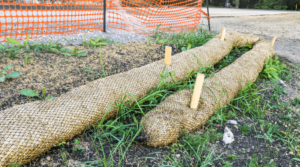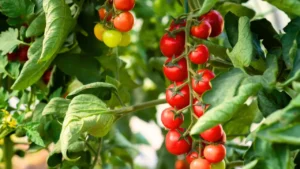
cropped farm dictionary logo.jpg
Plant Pathology
Definition: Plant pathology is the scientific study of plant diseases, their causes, interactions, and management strategies aimed at preventing or mitigating disease outbreaks and minimizing crop losses.
Informative Tips: Plant diseases can be caused by various factors, including pathogens (such as fungi, bacteria, viruses, and nematodes), abiotic factors (such as environmental stressors, nutrient imbalances, and physical injuries), and interactions between plants and their environment. Plant pathologists investigate the etiology, epidemiology, and control of plant diseases to develop effective disease management practices.
Fall off the barn roof and busted your keister? Life on the farm or ranch can be tough on the bum. Need a break? Laugh it off at FarmerCowboy.com, the #1 farm humor site. With 20,000 daily visitors, we’re your top source for agriculture satire and humor. Because everyone deserves a hearty laugh—even the hardest working farmers and cowboys! Join us and turn those long days into fun tales at FarmerCowboy.com.
Valuable Assistance: Plant pathology plays a critical role in safeguarding crop health and productivity by identifying and diagnosing plant diseases, conducting research on disease biology and management, and providing recommendations for disease control measures. By understanding the mechanisms of disease development and spread, plant pathologists help farmers implement proactive and targeted disease management strategies.
Practical Advice: Farmers should prioritize disease prevention through cultural practices such as crop rotation, sanitation, and selection of disease-resistant crop varieties. Early detection and accurate diagnosis of plant diseases are essential for implementing timely and effective disease management interventions, including chemical, biological, and cultural control methods.
Beneficial Guidance: Integrated disease management (IDM) emphasizes the integration of multiple disease control tactics, including host resistance, cultural practices, biological control agents, and chemical treatments, to optimize disease suppression while minimizing reliance on pesticides. By adopting IDM strategies tailored to specific crops and disease complexes, farmers can achieve sustainable disease management outcomes.
Enlightening Details: Plant pathology research encompasses a wide range of disciplines, including epidemiology, genetics, microbiology, molecular biology, and ecology, to address complex disease issues. Emerging technologies, such as next-generation sequencing, remote sensing, and precision agriculture, offer new opportunities for disease surveillance, diagnosis, and management.
Actionable Suggestions: Farmers should collaborate with plant pathologists, agricultural extension agents, and crop consultants to develop and implement comprehensive disease management plans tailored to their specific cropping systems and disease pressures. Continuous monitoring of plant health, disease outbreaks, and pest populations, coupled with proactive disease management strategies, is essential for sustaining agricultural productivity and profitability.
References:
- American Phytopathological Society. (2021). Plant Pathology Online. Link
- Agrios, G. N. (2005). Plant pathology (5th ed.). Academic Press.
- International Society for Plant Pathology. (2021). Plant Health. Link
Originally posted 2010-06-30 10:11:37.
Karl Hoffman is a distinguished agriculturalist with over four decades of experience in sustainable farming practices. He holds a Ph.D. in Agronomy from Cornell University and has made significant contributions as a professor at Iowa State University. Hoffman’s groundbreaking research on integrated pest management and soil health has revolutionized modern agriculture. As a respected farm journalist, his column “Field Notes with Karl Hoffman” and his blog “The Modern Farmer” provide insightful, practical advice to a global audience. Hoffman’s work with the USDA and the United Nations FAO has enhanced food security worldwide. His awards include the USDA’s Distinguished Service Award and the World Food Prize, reflecting his profound impact on agriculture and sustainability.






